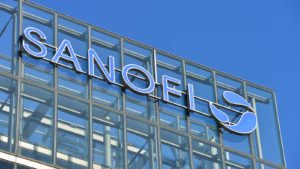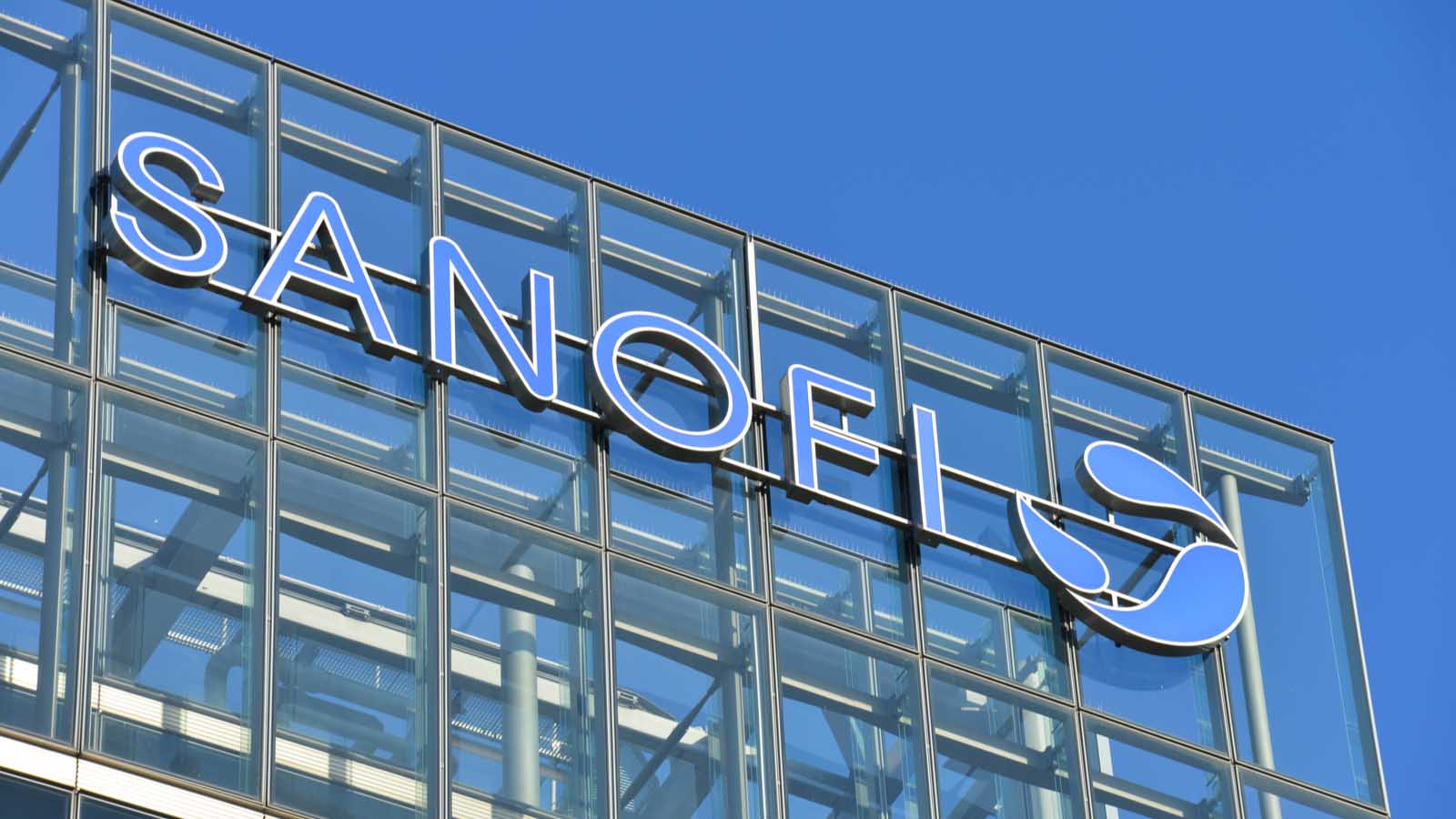Even if you’re a long-term, passive investor, you need to keep a wary eye on your holdings. Exhibit A? French drug maker Sanofi (NASDAQ:SNY).

A year ago, Sanofi was a slow if stable global pharma name, locked in a trading range of $40-$50. The dividend, paid annually, was a little unpredictable, but generally yielded over 3%.
Then the company hired away British executive Paul Hudson from Novartis (NYSE:NVS) as its CEO.
Today Sanofi is the most talked-about name in the business. The company is getting out of its investment in Regeneron Pharmaceuticals (NASDAQ:REGN), a stake worth $13 billion. Hudson has already started putting the money to work, buying Principia and its multiple sclerosis (MS) drug candidate for $3.7 billion.
Cost Cuts to Start
Upon taking charge, Hudson quickly switched meetings to Zoom Video (NASDAQ:ZM), months before the coronavirus hit. His total cost cuts were over $1 billion, and he’s only halfway to where he wants to be in 2022.
Hudson, previously U.S. pharma chief for AstraZeneca (NYSE:AZN), also cleared out the management ranks, replacing his chief medical officer and thinning out the executive committee from 14 to 10 roles.
When COVID-19 hit, Hudson quickly signed a deal with Glaxo SmithKline (NYSE:GSK) for mass production and a 2021 rollout. That meant spending money on facilities in advance of having a drug. It paid off when the Trump Administration signed off on buying $2.1 billion of the product once it’s ready.
Hudson is completely redesigning the company. He’s getting out of diabetes and heart research, despite producing one of the best-selling insulin products on the market. Instead he’s going after cancer drugs, paying $2.5 billion for Synthorx, beating three other suitors. Hudson is also spinning out the part of the company making active pharmaceutical ingredients (APIs).
The New Sanofi
The new Sanofi is a swashbuckling company with a busy checkbook, aiming to buy potential blockbuster drugs before they reach the market.
Hudson wants more drugs like Dupixent, a monoclonal antibody now approved for use against asthma, dermatitis and rhino sinusitis. Sales of Dupixent nearly doubled in the first half of 2020.
The transformation is far from finished. First half sales were up only 1.6% in constant dollars and were down in the second quarter. The diabetes and heart drugs are still in production, with falling sales, and there’s also a consumer health business where sales are falling.
Analysts Take Note of SNY Stock
Analysts are starting to take notice. The average price target of 23 analysts on Sanofi is now over $60 a share, the average rating an overweight. Bloggers also seem bullish. InvestorPlace contributor Will Ashworth says initial sales of new drugs are strong, the stock held back only by the compounds Sanofi wants to get out of.
But the move upward has barely started. Sanofi opens for trade Aug. 18 at a little over $52 per share, a market capitalization of $130 billion on trailing year sales of $37.6 billion. The stock has a price-to-earnings ratio of 26.8, but a yield of 3.31%.
The Bottom Line
Sanofi under Hudson is a more dynamic company than it was. It’s also a riskier investment.
Drugs and compounds that delivered reliable profits are being tossed in favor of new acquisitions with unproven medications. That seems to be the way Hudson wants it.
If you’ve been holding Sanofi for its dividend, this is important news. Management’s target is now for capital gains and growth. There’s more risk than you may have signed up for. You may want to find another horse.
But if you’re looking for a solid drug name that might provide big profits down the road, Sanofi may be what you’re looking for.
Dana Blankenhorn has been a financial and technology journalist since 1978. He is the author of the environmental thriller Bridget O’Flynn and the Bear, available at the Amazon Kindle store. Write him at [email protected] or follow him on Twitter at @danablankenhorn. As of this writing he owned no shares in companies mentioned in this story.
